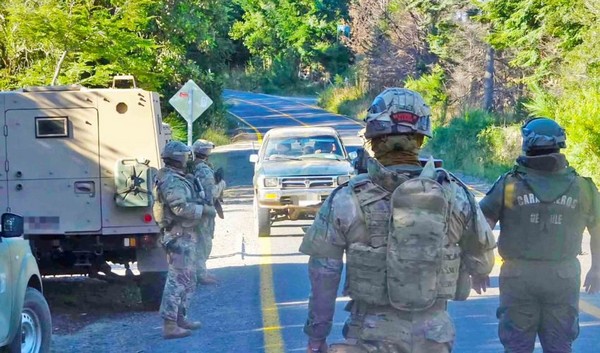The Constitutional State of Emergency, decreed on May 16, 2022, and repeatedly extended, has, according to the government, achieved significant improvements in reducing rural violence.
As detailed by the Minister of the Interior and Public Security, Carolina Tohá, during her recent visit to the Region, government reports indicate a 47% reduction in violent incidents in the Macrozone.
The authority emphasized that through crime investigations, the Region has seen results, even two years ahead of La Araucanía, thanks to police operations that have dismantled violent organizations.
She also highlighted that investment in depressed sectors and dialogue with the Mapuche people to reach peaceful solutions to their demands have been key factors in reducing violence.
However, "we are not yet in a position to say, by any means, that this issue is closed or resolved. This priority must be maintained. We must persist."
Acknowledging the Decline
The mayor of Cañete and president of Arauco 7, Jorge Radonich, agreed with Minister Tohá that rural violence "has decreased considerably; the area has been somewhat calmer. We hope it continues this way, but we have some doubts about whether it’s a full 100% reduction."
In fact, he asserted that rural violence has dropped by over 50% in his municipality. Thus, he views the Constitutional State of Emergency established in May 2022 as a good plan, though he refrains from giving an opinion on whether the measure should be lifted. "We think that since the State of Emergency has been in place for so long, the decline may be due to it."
Meanwhile, the mayor of Arauco, Mauricio Alarcón, stated that based on their information, "there has been a substantial decline (...) but statistics only reflect reported incidents, not all events that occur. There has been progress (in security), but that doesn’t mean we can be completely at ease."
The municipal authority noted that there are long-standing structural problems that remain unresolved.
"Considering the province of Arauco, particularly the southern cone—south of Cañete, Tirúa, and Contulmo—people’s quality of life has been severely affected for a long time. Their safety, property, and mobility under secure conditions, which the Constitution guarantees (...) Given this situation, I believe the measures the State must take, within institutional frameworks, should be permanent, at least in the medium term."
In this regard, he stressed that the Constitutional State of Emergency must remain in place, as it mitigates terrorist actions aimed at instilling fear. "They are small groups, but highly trained, with significant firepower—just look at the tragic incidents, such as the deaths of the Carabineros under the circumstances they occurred."
Tourism
The representative of the municipalities of Arauco, Curanilahue, Los Álamos, Lebu, Cañete, Contulmo, Tirúa, and Cañete stated that the reduction in violence is evident in how "now you can travel to different places without issues. Tourism has increased by over 80% in areas previously inaccessible. Campgrounds are full, and this renews people’s confidence."
Similarly, the mayor of Arauco noted that beyond statistics, the improvement is reflected in community dialogue, as fewer shocking and terrorizing incidents now allow many tourists to visit small towns like Tirúa and Contulmo, where much of the economy relies on tourism.
"This revitalizes the economies of these municipalities, which should be a priority concern for the State, regardless of the current government," he remarked.
Jorge Radonich added that to further improve the situation, the government should provide more job opportunities in Arauco Province, as employment has significantly declined in the area "precisely due to the situations we’ve faced."
Other Measures
Mayor Alarcón stated that the government must avoid timid behavior and send clear signals regarding violence reduction, such as increasing police patrols, deploying more Carabineros, and improving state intelligence for zone-specific planning. "Investigations should be handled by highly qualified personnel," he said.
He also suggested that security issues should be anticipated using existing technologies to adopt proactive rather than reactive policies.
"We not only face crime in various forms but also long-standing terrorist actions that, under the rule of law, must be confronted with full legal rigor. On the other hand, if certain issues aren’t covered by current laws, the Executive and Legislative branches should adapt accordingly."
Finally, Alarcón argued that human rights should protect not only perpetrators but also victims, calling for changes to "guarantor laws that safeguard some people’s rights—but who safeguards the victims’ rights?"
Source:Diario Concepción







Comentarios (0)
No hay comentarios aún. ¡Sé el primero en comentar!
Deja un comentario